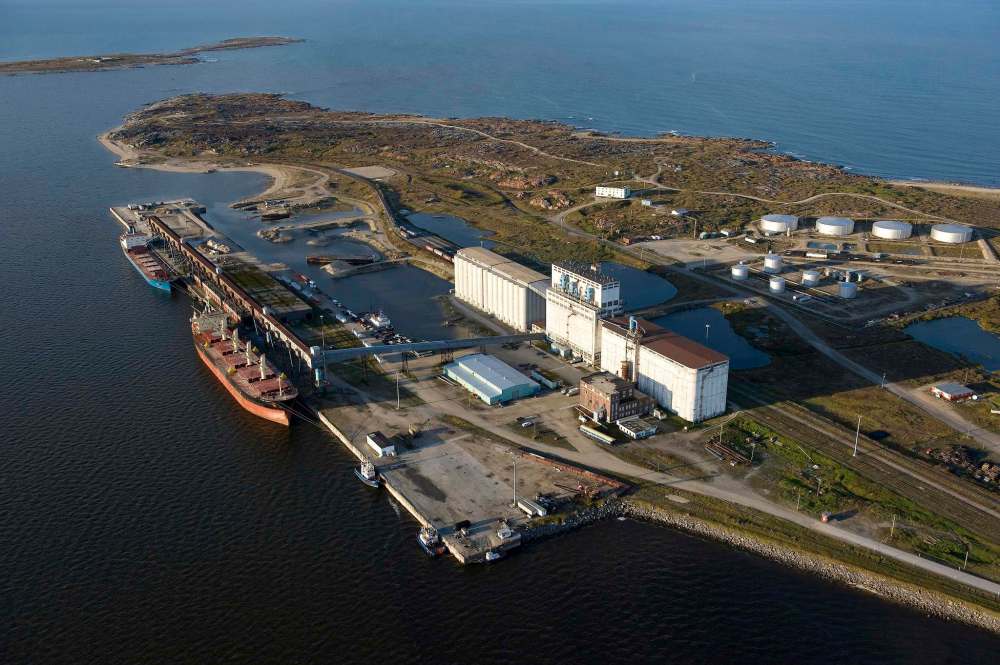Is Churchill port viable?
Recently elected federal, provincial governments need to figure it out
Advertisement
Read this article for free:
or
Already have an account? Log in here »
To continue reading, please subscribe:
Monthly Digital Subscription
$1 per week for 24 weeks*
- Enjoy unlimited reading on winnipegfreepress.com
- Read the E-Edition, our digital replica newspaper
- Access News Break, our award-winning app
- Play interactive puzzles
*Billed as $4.00 plus GST every four weeks. After 24 weeks, price increases to the regular rate of $19.00 plus GST every four weeks. Offer available to new and qualified returning subscribers only. Cancel any time.
Monthly Digital Subscription
$4.75/week*
- Enjoy unlimited reading on winnipegfreepress.com
- Read the E-Edition, our digital replica newspaper
- Access News Break, our award-winning app
- Play interactive puzzles
*Billed as $19 plus GST every four weeks. Cancel any time.
To continue reading, please subscribe:
Add Winnipeg Free Press access to your Brandon Sun subscription for only
$1 for the first 4 weeks*
*$1 will be added to your next bill. After your 4 weeks access is complete your rate will increase by $0.00 a X percent off the regular rate.
Read unlimited articles for free today:
or
Already have an account? Log in here »
Hey there, time traveller!
This article was published 01/09/2016 (3322 days ago), so information in it may no longer be current.
With the busy polar bear tourism season approaching and so much uncertainty enveloping the northern Manitoba economy, it is not hard to imagine jittery nerves getting in the way of better judgment.
A suspicious locomotive fire on an out-of-the-way service line in The Pas — a unit that may have been out of commission in the first place — made some people worry the now-infrequent rail service from The Pas to Churchill would be further compromised.
It turns out the fire might have caused a one-day delay in shipments, but it brings to the surface the grim realities northerners are facing and the fact there are no quick-fix solutions.

There are not many who believe there is an obvious money-making strategy for the operation of the Hudson Bay rail line or the Port of Churchill. Grain shipments have dried up, and efforts by Omnitrax over the last 19 years to diversify the commodities shipped from the port have failed miserably.
In a recent interview, Adolf Ng, the director of the Transport Institute at the Asper School of Business at the University of Manitoba, said even if there were new owners of the facilities, they would still have to work within the same poor market conditions that Omnitrax has proven to be unprofitable.
He wondered about the possibility of the port and the northern railroad eventually becoming linked to a global logistics and supply chain, especially if the melting polar ice means a longer and less-risky shipping season.
While there have been examples of large, busy ports being created over the past several years around the world, they have required massive injections of capital. Few have been located so far from populated markets.
Michael Benarroch, the dean of the Asper School of Business, said the port is important to Manitoba and Canada. He also understands its viability must be questioned.
“I think both the provincial and federal governments have to decide whether Churchill (the port and the railway) is strategically important for northern economic development and security, whether they believe the port might have viability in the future and whether they want to invest scarce resources, because governments are all running big deficits and are stretched in so many different ways,” he said.
It’s a complex set of issues.
“Whatever the solutions, it is not something that is going to happen tomorrow,” said Benarroch. “It will take some significant work.”
That’s cold comfort for anxious northerners who now rely on one train per week — for many communities, including Churchill, rail is the only means of surface transport — for supplies such as fresh food and produce, building materials and other day-to-day necessities, to say nothing about the servicing of tourists, a crucial business for Churchill.
Both Ng and Benarroch expressed sympathy for Omnitrax, a sentiment that would be hard to come by in the north these days, where Omnitrax is almost universally viewed as a pariah.
If it were any other enterprise whose business was failing, it would be treated differently. The fact Omnitrax has been the recipient of tens of millions of dollars of public-sector support to date means it should be treated differently.
The fact it also delivers an essential service adds another wrinkle.
The fact the company refuses to respond to any kind of public request for information — other than one interview with the Free Press in the last month — means it has relinquished any goodwill it might have built up.
Finally, the fact both the federal and provincial governments are relatively newly elected — and the “Churchill situation” was not an election issue for either of them — means they both have to figure out what they want to do.
Unfortunately, that does nothing to lessen the anxieties northerners are experiencing about the short- or long-term future of their communities.
martin.cash@freepress.mb.ca



